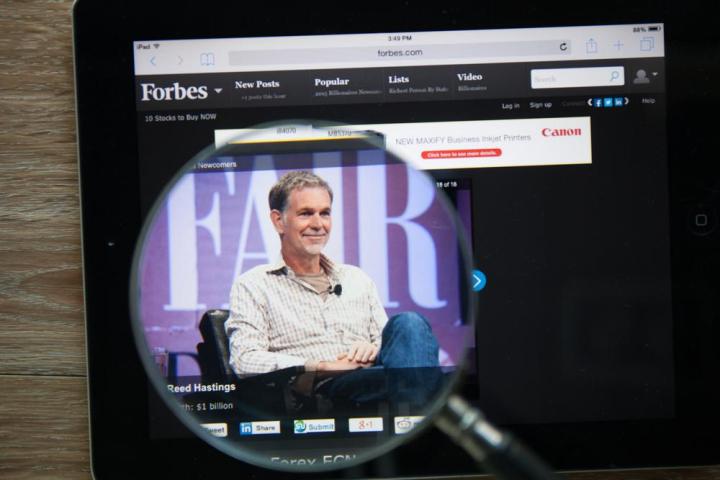
Related: The latest numbers suggest Netflix and friends really are killing traditional TV
Hastings gives linear TV – broadcast or cable — a 20 year expiration date as Internet video has an “astounding” amount of innovation. “Sometimes I say that linear TV is like the fax machine,” he said. “That, in the ’80s and ’90s, the fax machine was amazing. But then you started attaching files on documents and the fax machine was not so amazing. And linear TV, it completely transformed society.. but now there’s something better: Internet TV.”
In the speech, he compared Internet TV’s upcoming boom to the iPhone’s quick growth and current ubiquity. “Ten years ago, there was no iPhone — the entire smartphone revolution has happened in ten years … So, what about the next ten years? What will that bring in hardware innovation, in immersive reality, in incredible screens. Screens in the home. Screens in your pocket. The Internet will get so much faster with fiber [Internet access]. All of this will happen within ten years.”
Hastings predicts that 4K televisions will be integral to the demise of broadcast cable. He says, using the next World Cup as an example, that many people will have 4K television in the future — but they won’t be watching it on broadcast or cable TV, rather, the 4K content will instead come over the Internet as Internet solutions have ever-increasing data transfer abilities.
Further, Hastings predicts that while some current television networks will succeed by converting to Internet TV companies, the barriers to entry are dropping and so will some TV stations that remain behind the times. “The great thing about the Internet is if you can build an app for the iPhone or the Android, you can be a TV network.”
What about the future of Netflix? Worldwide growth remains a priority for the company, which currently has 57.4 million subscribers, but they don’t anticipate on broadening their types of programming. He said that Netflix is ‘really focused on movies and TV shows,’ noting that the company will be producing more shows and exploring new formats for TV. While he didn’t go into depth, he cited “playing with the formats, with interactivity, with plot twists” as some of Netflix’s future forays. “We want Netflix to connect the world… so the world’s best storytellers can get to a global voice.”

